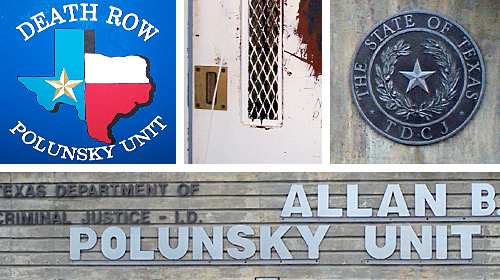Court Rejects Attempts to Devalue Life of the Accused in South Texas Capital Case


“A life in Cameron County [Texas] is worth just the same as a life in other parts of the United States.”
This pointed sentence came in Judge Elia Corenjo Lopez’s 63-page order this week, in which she recommended that former death-row prisoner and ACLU client Manuel Velez be given a whole new trial.
Why would a judge think she had to make such a self-evident observation? The answer sums up much of what is wrong both with this case and with the death penalty in the United States.
Manuel Velez, a poor Latino laborer, was convicted and sentenced to death because his life was not of the same value in the criminal justice system as a wealthy man who could have afforded high-quality counsel. Some poor people get high-quality public defenders or appointed counsel, but only by the luck of the draw. Had Manuel Velez been afforded quality counsel in the first instance – had his life been valued and protected like a rich person’s – it is highly unlikely he would have spent four years on death row for a crime he did not commit.
It is to Judge Lopez’s credit that she recommended a new trial, given the clear evidence of Manuel’s innocence – evidence that his trial counsel flat out failed to present.
Let’s review what has happened so far to Manuel Velez. In 2008, he was convicted of murder of a one-year old child and sentenced to death. The ACLU represented Manuel in his appeal to the Texas Court of Criminal Appeals, which in June of 2012 reversed his death sentence only (but not the underlying conviction) because the sentence was predicated on the false testimony of a State’s expert. In December of 2012, Judge Lopez held an evidentiary hearing on whether Manuel received effective assistance of counsel at trial. This week’s order was the decision on the December hearing.
By late in the hearing, the writing was on the wall: Manuel Velez was innocent. He had been convicted of killing the child and sentenced to death only because of ineffective defense attorneys who failed to present available medical evidence conclusively showing that the child’s serious head injuries (and other injuries) were caused when Manuel was away working in construction in Tennessee. This evidence shattered the State’s circumstantial trial theory that Manuel Velez must have been the guilty culprit because the child was a healthy baby before the last two weeks of his life and had become injured only after moving with his mother and siblings into Manuel’s home.
At the hearing, one by one the medical experts came to the stand – forensic pathologists, neuropathologists, medical examiners, pediatricians, State’s experts, and defense experts. They talked of skull fractures, of microscopically-examined brain hematomas (blood on the brain), of cat scans, and the dramatic increase of the child’s head circumference beginning three to four months before his death. All of this evidence converged to show the child had serious head injuries (and other injuries) long before he lived with Manuel Velez, but while he was living with his troubled mother, who had a drinking problem, irresponsible habits, and a bad temper. The experts uniformly stated that had they been called to the stand and/or asked these questions at the 2008 trial, they would have given this same exonerating testimony. But the experts either weren’t called or, for those who were called by the State, were not asked the right questions because defense counsel had fallen down on the job.
The writing on the wall also said that Manuel Velez deserves a new trial where a jury could hear not merely the State’s theory, but all of the evidence, including evidence in his favor presented by competent defense counsel. “All the evidence” includes this science, and the common sense reality: Manuel could not have hurt this baby from another state.
By the hearing’s summations, the writing could not have been clearer. That’s when the State threw up a Hail Mary to save Manuel Velez’s capital murder conviction. As Judge Lopez noted in her order, the State argued, “in South Texas, the standards for the representation of capital defendants or the kind of expert testimony available to such defendants is lower than in other jurisdictions.”
In other words, even if these new experts are right, the State argued, counsel did not err in not presenting them because counsel were not expected to call high-quality experts. Building on this theme, at another point, the State argued that defense counsel “didn’t have the availability of a pack of high-priced, suited attorneys,” referring to Manuel’s pro bono lawyers from Rothgerber, Johnson, and Lyons and Carrington Coleman. According to the state of Texas, Manuel Velez’s lawyers could satisfy the Constitution by answering to a “lower” standard of care, a standard merely “good enough for South Texas.”
Except the Constitution demands more. If Manual had had the effective lawyers required by the Sixth Amendment during his trial, he likely would have been found innocent four years ago – and not had to endure four years of the exquisite torture of imprisonment on death row as an innocent person.
The problem of inadequate counsel for the poor has tainted the trials in which hundreds of people have been sentenced to death rows across this country. So far, 142 people on death row have been exonerated after being proven innocent. With this week’s order (which must be affirmed by the Texas Court of Criminal Appeals to take legal effect), Manuel Velez moves one step closer to joining that list, and to regaining his long-lost and unjustly-taken freedom.
Learn more about the death penalty and other civil liberty issues: Sign up for breaking news alerts, follow us on Twitter, and like us on Facebook.


